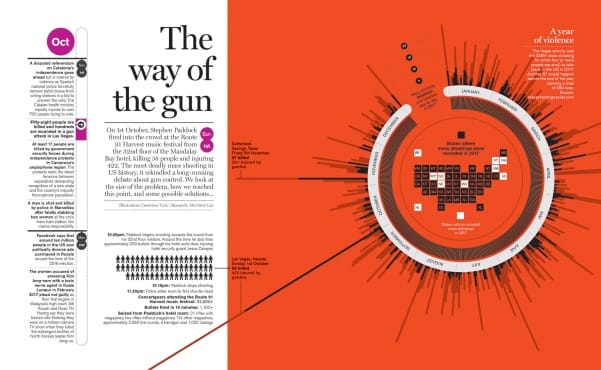The key role slow journalism plays in the 24/7 digital news cycle
Rob Orchard, editor, Delayed Gratification, explains why being 'last to breaking news' can often help readers better understand the world around them


Rob Orchard, editor, Delayed Gratification, explains why being 'last to breaking news' can often help readers better understand the world around them
This article was migrated from an old version of our website in 2025. As a result, it might have some low-quality images or non-functioning links - if there's any issues you'd like to see fixed, get in touch with us at info@journalism.co.uk.
It's an interesting yet incredibly turbulent time for the media industry, with journalists constantly trying to engage audiences in a digital world. But does that mean there's no room for print anymore?
Rob Orchard doesn't think so. As one of the editors of Delayed Gratification, a quarterly publication dedicated to taking a deeper, more informed look at world events, he believes that being last to breaking news can inform audiences in a way that the constant stream of 24/7 news updates can't.
"We think there is merit in producing something in print, and certainly giving people perspective," Orchard said. Issue 29 of the magazine was released last week, covering news events that have happened between October and December 2017.
"We didn't really think much beyond the first issue, but we wanted a forum where we as journalists could write longform, in-depth features and really get to grips with the stories."
When the publication was founded in 2011 by Orchard and journalists Marcus Webb, Christian Tate, James Montague, Matthew Lee and Jeremy Lawrence, they wanted to find a solution to what Orchard described as the industry's 'perfect storm'.
"In the midst of papers closing, editorial budgets shrinking and people being laid off, journalists were asked to create more content with fewer resources in a shorter time.
"It was clear to us that the media landscape was extremely grim. People were talking about the death of print and that digital was the only possible solution – but we believed people may fall out of love with their smartphones at some point."
With 5,000 magazine subscribers and a print readership of 24,000, the small team is proving there's an appetite for revisiting key events, even if the news agenda has moved on.

Each issue of Delayed Gratification, which is produced by a small central team and a large network of freelancers, covers a three month period and is published another three months after the dates covered in the magazine – enough time, Orchard explained, for final analysis on the topics to be given.
Along with longform articles, the magazine is packed with infographics, timelines, cartoons and photographs.
"We pull it together in a way that makes sense, so you don't have long and depressing features following each other, and we mix political stories with sport and culture and society.
"There will be certain huge stories, like the Las Vegas shooting, that absolutely have to be covered, but we also like to uncover stories that were either not told at that time, or that gained little media attention.
"We want new angles on stories that could only be achieved three months down the line – what happened after the dust settled, after the rest of the media moved on?"
The magazine has evolved over time and has become more adventurous in the type of stories it has tried to tackle, Orchard explained.
Stories in the latest issue range from a 5,000 word piece about Robert Mugabe's resignation, to the mission to find Britain's sunken treasure, to harassment in the era of Harvey Weinstein.
There's also a focus on solutions journalism and more positive stories, aiming not to write news that makes audiences feel powerless.
"As humans, we are not very good at processing relentlessly depressing information – we are always looking for the triumph of the spirit, even in really bleak stories," he said.
"If you get to the end of a story and it has just been completely harrowing, it is very difficult to know what to do with that."
Subscriptions to Delayed Gratification, which include entry to classes in how to make infographics and create magazines, as well as entry to live 'slow journalism' events, cost £36 per year.
Orchard said 50 per cent of the subscriptions for the year come through in the weeks leading up to Christmas, when audiences are more likely to sit indoors and read.
"It's either a very slow magazine or a fast history book."